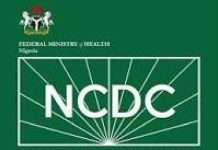
The Association of Hospital and Administrative Pharmacists of Nigeria, AHAPN, has urged management of health institutions in Nigeria who are yet to integrate their pharmacists into their patient management teams to put machinery in place to see to its actualization as such has become the gold standard in pharmacy practice across the globe.
The association made the call in a communiqué issued at the end of its 22nd Annual National Scientific Conference which held from 2 to 6 August, 2021 at De-Peace Hotel & Suites, Ilorin, Kwara State.
The conference themed: “Advancing Technological Revolution in Pharmaceutical Service Delivery”, began with a health outreach programme in Ilorin, Kwara State capital. It also featured a keynote address delivered by Prof. Patrick Omonua Erah, a professor of Clinical Pharmacy and Pharmacy Practice, University of Benin, Edo State.
AHAPN reaffirmed the indispensability concept of the pharmacist as an integral member of the healthcare team, crucial to the delivery of quality healthcare to patients in Nigeria and submitted that the integration of pharmacists into the patient management team in a collaborative practice with clinicians in some practice settings in Nigeria has reduced preventable adverse drug events and saved the cost of healthcare to patients.
The association therefore called on health institutions yet to align their pharmacy practice to the aforementioned model to put machinery in motion to see to its actualization, as this has become the gold standard of practice of pharmacy across the globe.
The communique, jointly endorsed by the Immediate Past National Chairman of AHAPN, Dr Kingsley Amibor and Secretary, Dr Hafiz Akande, acknowledged global trends in the evolution of pharmacy practice which includes provision of expert and specialised services such as pharmaceutical care, radiotherapy, effective medication therapy management and specialised pharmacotherapy for disease conditions, pharmacovigilance and adverse drug reporting among others, maintained that the foregoing areas remain advanced and required expert and specialist skills to effectively drive their practice.
AHAPN appreciated the Federal Government of Nigeria for its recent efforts in realigning the healthcare system with quality standards in line with global best practices as demonstrated through government’s creation and release of the circular on the Pharmacist Consultant Cadre for pharmacists in civil /public service in Nigeria as approved by the National Council on Establishment.
It also commended the Board of Management of University College Hospital, Ibadan for being a trail blazer in the implementation of the circular and called on all other hospitals in Nigeria to emulate UCH, Ibadan and commence implementation without further delay.
According to the communique, “Conference reaffirmed that pharmaceutical care, a specialist practice, the mission of Pharmacy and a measure of the quality of the pharmacist’s contributions in the healthcare delivery system remains the bedrock and cornerstone of Pharmacy practice in the twenty-first century era.
“In the light of the aforesaid, conference commended the Pharmacists Council of Nigeria (PCN) for her adoption of the AHAPN-pioneered Position Paper on Pharmaceutical Care as a veritable tool that would drive the implementation of this model of practice in Nigeria. Conference, therefore called on the PCN to fast-track the process of implementation in our health facilities across the country through proper regulation and adequate oversight.
“It reiterated the overarching relevance of the Consultant Pharmacist in patient care in today’s provision of healthcare globally. It further noted that management of patients by consultant Pharmacists in collaboration with other caregivers achieved through deployment of the right skills and knowledge, display of the right attitude and effective and efficient communication will go a long way in properly shaping healthcare delivery services in Nigeria and remain mutually beneficial to both the patients and practitioners”.
The association also harped on the deployment and implementation of technology, in assisting pharmacists and pharmacies in delivering improved care to their patients with positive impact on clinical, operational, financial and regulatory compliance.
Identifying e-dispensing and digitalisation as key form of technological innovation that is transforming hospital pharmacy practice with great potentials to mitigate the issues associated with paper-based prescriptions, prescription authentication, medication errors, and medication safety and documentation, the conference listed benefits of e-dispensing and digitalisation to include: promotion of better care co-ordination, improved clinical practice, accountability and communication across the healthcare continuum.
The conference therefore advocated the introduction and use of e-dispensing and digitalisation principle in Nigeria’s healthcare space as a mechanism to improve workflow and reduction in the complexities associated with the dispensing procedure, reduce prescribing and dispensing errors, improve patient safety through reduction of adverse drug events.
On the part of the National Agency for Food and Drug Administration and Control (NAFDAC), the conference saddled it with the responsibility of forming necessary partnerships with other stakeholders with a view to deploying a more effective and robust means of securing the medicine supply chain in Nigeria.
The communique reads in part: “Conference called on the leaderships of federal health institutions in Nigeria to fast track the process of setting up of Compounding/Small Scale Production Units in their hospitals without delay in line with the directive of the Federal Ministry of Health and submitted that this measure would go a long way in saving cost for the institutions as well as ensuring medicines security in the long run.
“It appraised the incessant spate of industrial unrests within the Nigerian health sector and traced its etiology to the hegemony of injustice perpetrated by one group of health professionals perennially entrenched using the instruments of offices of its privileged members in high places in government.
“Conference, therefore, called on the Federal Government under the leadership of President Muhammadu Buhari, GCFR to demonstrate that it has the political will and take practical steps to redress the glaring cases of injustice and impunities that have become the hallmark of the health sector.
“In line with the aforementioned, the conference called on the Federal Ministry of Health to respect the letters of the various collective bargaining agreements (CBA) it had reached with the leadership of JOHESU/AHPA”.
The Annual General Meeting unanimously ratified and adopted the proposals contained in the 2021 reviewed Byelaws of the Association as approved by the National Council. At the end of the meeting, AHAPN elected Pharm. Olabode Ogunjemiyo as its national chairman and other officers as its leaders to pilot its affairs for the next three years. Pharm. Elechi Oyim, emerged deputy national chairman while Pharm. Oladele Obikoya emerged the national secretary.
Others are: Pharm. Joseph Ole – assistant national secretary;Pharm. Oyinlade Kehinde – national treasurer; Pharm. Saheed A. Olanrewaju, national financial secretary; Pharm. Zainab O. Alabi, national publicity secretary; Pharm. Hasfat Ahmed Abdullahi as national internal auditor; Pharm. Francis Odigie and Pharm. Uche Eze as national unofficio members, while Dr Kingsley Chiedu Amibor remain the immediate past national chairman.










